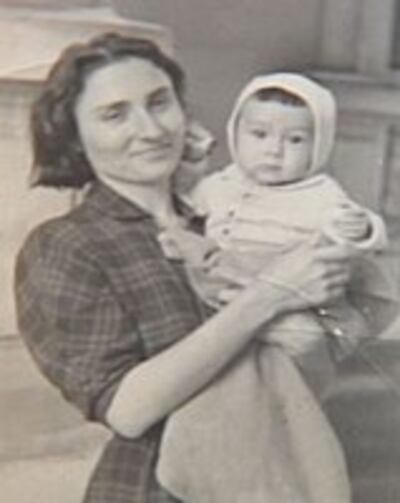SEOUL—An elderly Romanian woman separated from her North Korean husband for four decades says she has trouble believing Pyongyang’s claim that he died almost five years ago, and she still wants answers about how he lived and died.
“In the last letter I received from him, my husband said that being together with his family was his duty in this life,” Georgeta Mircioiu, 75, said in an interview.
“He was confident that if he did his best working in the coal mine, he would be given an opportunity to rejoin his family. He insisted that was his duty, and his greatest wish.”
Mircioiu and her North Korea husband, Cho Jeong Ho, were first separated in 1962, and she tried for 47 years to find and reunite with him.
After repeated petitions to the North Korean authorities, and with long-sought help from the Romanian government, Mircioiu received a phone call earlier this year from the Romanian Foreign Ministry to inform her that Pyongyang had transmitted a 2004 death certificate for Cho, she said.
She said she still wants to know how he lived and died, and whether he missed his wife and daughter, who is now 48.
She also hopes to visit North Korea to search for any traces Chomight have left behind. She plans to work on publishing aKorean-Romanian dictionary.
Work with orphans

Mircioiu met Cho in 1952 when he was in Romania on an educational assignment to care for 3,000 North Korean war orphans billeted there.
“We waited for five years to have our marriage approved by the North Korean authorities. One of the conditions they put forward was that the wife should follow the husband, and consequently we went to North Korea together,” she said.
“We never considered not going to North Korea, as we were hoping that those conditions might be relaxed after a few years, but obviously that was not the case.”
The two fell in love, but for five years their application for a marriage certificate was approved by neither the Romanian nor the North Korean authorities. They ultimately relented and the two were married on April 12, 1957, in Bucharest.
Later, they moved to Pyongyang, their daughter Cho Miran was born.
“I lived a happy life in Pyongyang, by my husband’s side. The people I knew were very affable. Nevertheless, strangers I met in the street appeared suspicious of me, because I was a foreigner. Another difficult aspect was that my daughter and I were given almost no food rations at all,” she said in an earlier interview.
Enforced separation
In 1962, Mircioiu took the couple’s one-and-a-half-year-old daughter back to Romania for treatment for severe calcium deficiency, inadvertently beginning the couple’s long separation and Cho’s ordeal in a labor camp for being associated with a foreigner.
She was refused a visa to return to North Korea repeatedly by consular officials in Romania, who told her at different times that Cho was dead, missing, or “needed by North Korea.”
The two managed to maintain correspondence until 1966, when she received the last letter from her husband.
Original reporting by Sookyung Lee for RFA’s Korean service. Translation from the Romanian and Korean by Greg Scarlatoiu. Korean service director: Insop Han. Written and produced in English by Sarah Jackson-Han.
